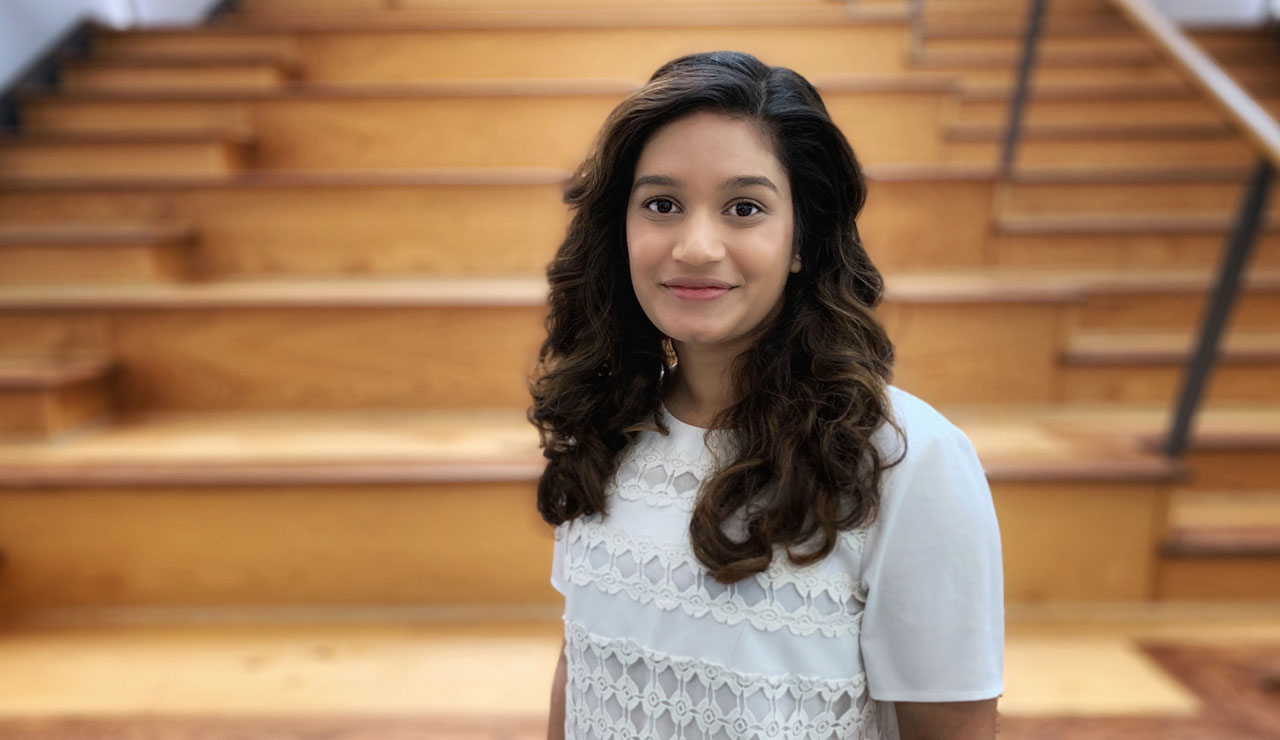Lived experience fuels passion for health research and advocacy in Pediatrics master’s grad
Kirsten Bauer - 18 November 2021

Reshma Sirajee, ‘19 BSc, ‘21 MSc, has seized every opportunity to improve lives for people facing health inequities in Canada and around the globe.
Whether seeking out research opportunities as a high school student, volunteering to support newcomers with the Canadian Red Cross or conducting pediatric HIV research in Uganda with supervisor Michael Hawkes, Reshma Sirajee, ‘19 BSc, ‘21 MSc, has seized every opportunity to improve lives for people facing health inequities in Canada and around the globe.
“I worked my first job in Grade 9 to help out my family. My background taught me to be a go-getter in a way. I know how to seek help and I know how to create opportunities for myself,” says Sirajee.
Recently named to Alberta Council for Global Cooperation’s (ACGC) Top 30 under 30, Sirajee moved to Canada with her parents from Bangladesh when she was just 11 years old, providing her with first-hand experience of the challenges faced by newcomers seeking to start new lives in Canada. Sirajee says watching her parents experience social, cultural and financial barriers has been a strong motivator for her to improve the lives of others in a health-science career.
“Witnessing my parents adapt to some of the challenges they faced, like language barriers and financial issues, helped me understand what it was like,” Sirajee said. “It made me very understanding of the ways social factors can hold people back, and how that prevents them from accessing opportunities in life.”
Research lessons in the COVID-19 pandemic
Sirajee’s research focused on infants born to women living with HIV in Uganda. HIV-exposed uninfected (HEU) infants have an increased risk of reduced brain growth, lower height, lower weight and overall life expectancy compared to infants who were born to mothers who do not have HIV. The research set out to identify if early growth issues in Ugandan HEU infants can predict developmental problems in later ages, to help improve their health later in life.
When the global pandemic was announced, her plan to travel to Uganda to do laboratory work was deterred by the COVID-19 travel ban. Initially disappointing, the challenges of conducting research remotely brought unexpected lessons on resilience and flexibility.
“It was definitely very challenging at the moment. When I hit that obstacle I was really grateful for my supervisor, who taught me that no matter what barriers you face, there are always creative solutions to problems,” Sirajee said. “So we started working online, and it showed me that obstacles come up all the time, but it's a matter of how do we work around that? I thought that was really useful.”
The need to adapt to the restrictions of the pandemic was a lesson in problem-solving, methodology and communication, Sirajee says, which are skills she will carry with her in her future career.
“I had to learn about the cultural aspects of the research and communication,” she added. “Our research tools have to be tailored to that population, so I had to shift my mindset to what is more culturally relevant to them. It was a great experience for me to work with researchers in Uganda.”
Striving for a more equitable future
Now a first-year medical student at the University of Calgary, Sirajee hopes to apply her HIV knowledge and research skills to providing the best possible patient care as a future physician. Her family roots and experiences as newcomers to Canada will also play a central role in her efforts in medicine and public health moving forward.
“I feel lucky to be the first person in my family to have the opportunity to attend medical school,” said Sirajee. “I came from a lower socioeconomic background and I want to be able to create opportunities for other women in a similar position. I will also continue advocating for the newcomer population and for greater awareness of mental health issues while in medical school.”
“I'm grateful for all the support I've received from the UofA and the people I've met along the way, because without them I wouldn't be here.”